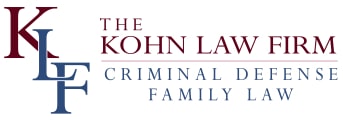What Happens During A Legal Hearing In Colorado?
A legal hearing in Colorado, as in other jurisdictions, is a critical component of the judicial process, providing a formal setting in which disputes can be presented, evidence can be examined, and legal arguments can be heard by a judge or administrative officer. Legal hearings occur in various contexts, including criminal cases, civil disputes, family law matters, and administrative proceedings.
The specific nature and procedures of a legal hearing can vary depending on the type of case and the court overseeing it. However, some common elements and steps typically occur during a legal hearing in Colorado.
1. Opening of the Legal Hearing
- The hearing begins at a scheduled time and place, with the presiding judge or administrative officer calling the session to order. The parties involved in the case (plaintiffs, defendants, attorneys, etc.) must be present, and the case is identified by name and docket number.
2. Introduction and Preliminary Matters
- The judge or officer may start with preliminary matters, such as confirming the presence of necessary parties, addressing any last-minute motions, and outlining the procedures that will be followed during the hearing. This may also include discussions about the admissibility of certain evidence or other procedural issues.
3. Presentation of Cases
- Opening Statements: Often, both sides have the opportunity to make opening statements, outlining their case and what they intend to prove, although this is more common in formal trials than in all hearings.
- Presentation of Evidence: The party who initiated the proceeding (plaintiff in civil cases or prosecution in criminal cases) presents their evidence first. This can include documents, physical evidence, and witness testimony. The opposing party (defendant) then presents their evidence. Each side may cross-examine the other’s witnesses.
- Expert Witnesses: In some cases, expert witnesses may be called to provide specialized knowledge relevant to the case.
4. Legal Arguments
- After the presentation of evidence, both sides may make legal arguments or present their interpretation of the law as it applies to the evidence presented. This is a chance for each party to highlight the strengths of their case and the weaknesses of the opponent’s case.
5. Closing Arguments
- Similar to opening statements, closing arguments allow both sides to summarize their case, emphasizing key evidence and legal points. It is the final opportunity to persuade the judge or officer of their position.
6. Deliberation and Decision
- The judge or presiding officer will deliberate on the case, considering the evidence and arguments presented. This may happen immediately following the hearing or at a later date, depending on the complexity of the case.
- Decision: The judge or officer will issue a decision, which may be announced at the end of the legal hearing, provided at a later date, or written and sent to the parties involved. The decision will include findings of fact, conclusions of law, and the outcome (such as a ruling in a civil case, a verdict in a criminal case, or a decision in an administrative hearing).
7. Post-Hearing Procedures In A Legal Hearing
- Depending on the type of legal hearing and the outcome, there may be additional steps after the hearing. This can include the issuance of formal orders, the setting of sentencing (in criminal cases), or the initiation of appeal processes.
The Legal Hearing Is Fundamental
A Legal hearing in Colorado is fundamental to the resolution of disputes and the administration of justice. They provide a structured environment for the presentation of evidence, examination of legal issues, and determination of outcomes based on law and facts. Given the potential complexity and significance of hearings, individuals involved in legal disputes are advised to seek legal representation to navigate the process effectively and advocate for their interests.
Krista Barthel
Heather Ellenbecker
Lisa White
sam burke
RoyalGorgeParanormal
Angela
Donny C.
Courtney Goode
Roger Stacy
Karina Gutierrez Ramos
NEED LEGAL HELP?
Contact Us Now!
